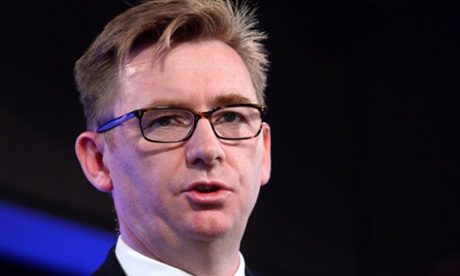PM’s former adviser says counter-proposal must be assessed to ensure if benefits all Australians, not just medical association

The health consultant who kickstarted the debate over a Medicare co-payment late last year has called for scrutiny of the Australian Medical Association (AMA) counter-proposal to ensure it is “not self-serving”.
The AMA, which has led criticism of the government’s decision in the budget to introduce a $7 co-payment for GP visits, plans to release its alternative proposal to the media on Thursday.
It is understood the proposal includes blanket exemptions for pensioners, children under 16, and people with chronic illnesses. The AMA model would not include the government’s proposal to cut by $5 the Medicare Benefits Schedule (MBS) rebates received by practices – a key plank of the budget plan to raise money for a medical research future fund. The amount patients would pay may also be lower in the AMA model.
Terry Barnes, a former health adviser to Tony Abbott when he was health minister, said broad exemptions would be administratively difficult.
“It’s important that the AMA solution is not self-serving; that it is publicly scrutinised to see if it is in the best interests of Australians, not the AMA and its members,” he said.
Barnes proposed a Medicare co-payment in a submission to the government’s audit commission late last year, triggering public debate before the Coalition revealed its own plan in the budget. Barnes’s paper was commissioned by the Australian Centre for Health Research, a thinktank established by several health funds and private hospitals.
The AMA’s president, Brian Owler, said he would brief other GP groups in Canberra on Thursday morning before releasing the association’s alternative plan.
“The AMA model achieve the aims of protecting vulnerable patients in the community, and values general practice to encourage quality and support prevention and chronic disease management,” Owler said.
The government is considering the AMA proposal and talking with crucial crossbench senators, but has previously warned that it would be “very hard to provide blanket exemptions”. The government model as announced in the budget would not exempt pensioners and children under 16, but people in those groups would revert to bulk-billing after 10 services within a calendar year.
The health minister, Peter Dutton, told Sky News last week a blanket exemption for anyone on a pension or under the age of 16 would represent “almost 9 million Australians out of a population of 23 million”.
On Wednesday, Abbott reinforced the view that the government did not want to fully exempt pensioners from the Medicare co-payment.
The prime minister said pensioners were not exempted from the existing Pharmaceutical Benefits Scheme (PBS) co-payment for subsidised medicines, although the co-payment was less for concessional patients than for general patients.
He told the 4BC radio station: “If we don’t exempt pensioners from the PBS co-payment, why should they be entirely exempted from the Medicare co-payment?”
Barnes said the co-payment debate had highlighted the need to reform safety net arrangements for both the PBS and the MBS, saying it did not make sense for policy to consider the two issues separately.
“In the interests of fairness and transparency Medicare and the pharmaceutical safety nets should be combined so we look at people’s total health spend not just bits of it,” Barnes said.
“It’s become very clear to me over the last few months you can’t look at a person’s Medicare spend without looking at their PBS spend.”
Labor and the Greens are firmly against introducing a Medicare co-payment, meaning it cannot pass the Senate unless the government persuades the Palmer United party senators to drop their opposition.
Labor’s health spokeswoman, Catherine King, said the opposition would not consider a compromise proposal because “no amount of fiddling can fix Tony Abbott’s rotten GP tax”.
“The GP tax is a direct attack on the fundamental principle of Medicare that the best quality healthcare is available to every Australian,” she said.
King said Abbott’s comment about exemptions for pensioners showed “contempt”.
